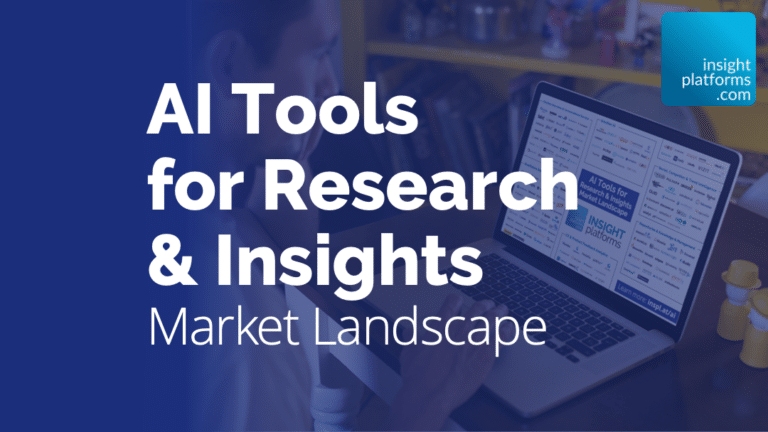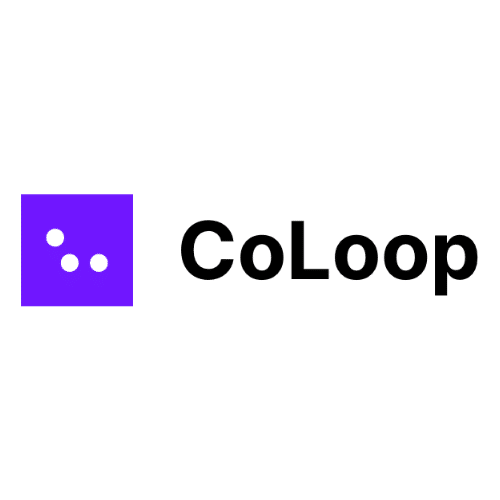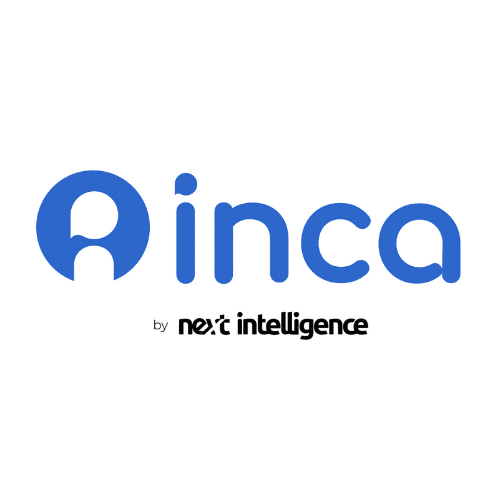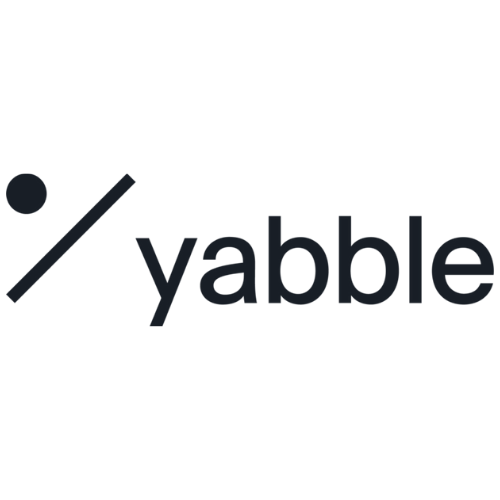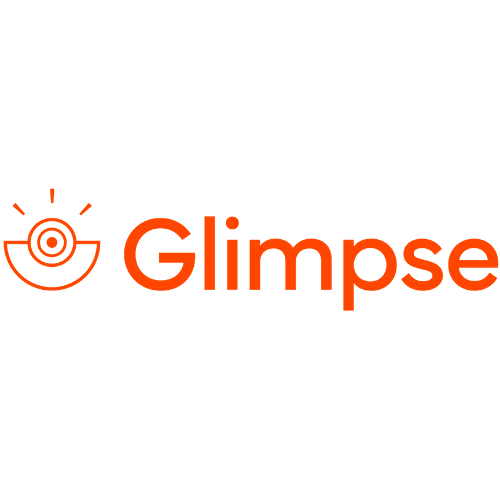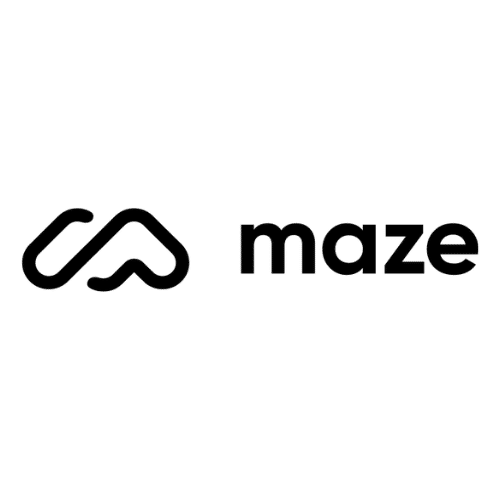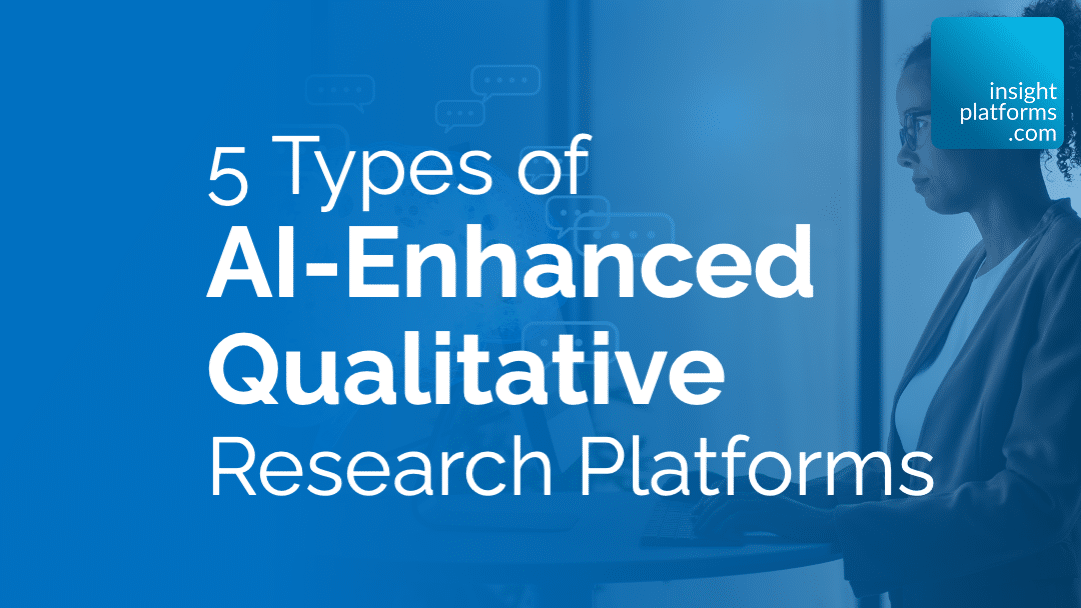
5 Types of AI-Enhanced Qualitative Research Platforms
By Insight Platforms
- article
- Qualitative Research
- NLP (Natural Language Processing)
- Text Analytics
- Image Analytics
- Visual Analytics
- Qualitative Data Analysis
- Conversational AI
- Chatbots
- Emotion Analytics
- Sentiment Analysis
- Agile Qualitative Research
- Artificial Intelligence
- Machine Learning
AI-enhanced research tools are starting to be the norm nowadays. Some aspects of research are easier to automate than others, but both qualitative and quantitative research can use AI to make things faster, cheaper, and more agile.
But things in AI change very quickly, as does the technology itself – so the below is by no means an exhaustive list of AI-enhanced qualitative research tools. For a more detailed and extensive list (albeit still not exhaustive), check out our AI Tools Landscape:
AI Tools for Research & Insights: Market Landscape
Qualitative Data Analysis
These tools are instrumental in delving into non-numeric data to extract meaningful patterns and insights. Qual analysis platforms can process a wide array of qualitative data sources such as interview transcripts, focus group discussions, open-ended survey responses, and even multimedia files like videos and audio recordings. Using advanced AI techniques, these tools can identify recurring themes, discover conceptual linkages, and generate comprehensive reports that provide a deeper understanding of the subject matter.
Stay up to date
Subscribe to receive the Research Tools Radar and essential email updates from Insight Platforms.
Your email subscriptions are subject to the Insight Platforms Site Terms and Privacy Policy.
Here are some examples of specialist AI-enhanced Qualitative Data Analysis (QDA) solutions:
Quillit
Quillit is an AI-driven report-generating tool by Civicom that takes qualitative data gathered from your IDIs, focus groups, online communities, and even open-ended survey responses and generates reports that researchers can complete and refine. Quillit supports a comprehensive, in-depth, and segmented analysis, allowing for the comparison of responses across diverse customer segments. It also validates insights by offering verbatim quotes with proper citations, ensuring that the findings are both accurate and easily verifiable. To maintain data security and privacy, Quillit is compliant with GDPR, SOC2, and HIPAA standards and isolates data by project or user.
Quillit ai
CoLoop
CoLoop is an AI-based platform for qualitative analysis that can summarise, answer questions, and quickly write and format slides. The platform supports the upload of diverse research materials such as text, audio, and video, and analyses them in minutes. Researchers can pose questions, and CoLoop’s AI-powered chatbot will extract referenced insights, assisting in building a thorough mental model of the research material. The ability to generate high-quality decks and reports by extracting pertinent quotes and audio clips further streamlines the analysis process,
Reveal
Reveal uses AI to speed up the synthesis of user interviews with capabilities to create auto-transcriptions and translations from 18 languages. Researchers can set up research objectives, test hypotheses, and ask pertinent questions within the platform. Reveal’s AI-driven algorithms suggest emerging themes and facilitate the comparison of interviews to uncover patterns and contradictions. The tool is designed with robust data privacy features, ensuring that sensitive information is securely handled.
Reveal
Beyond these three examples, you can find more specialist solutions in the Qualitative Data Analysis category including MAXQDA, NVIVO, Quirkos and Atlas.ti.
In fact, many more qualitative research platforms have built-in AI analysis capabilities: learn more about Recollective, incling, Qualzy, Indeemo, Voxpopme, Discuss and others in the Qualitative Research topic page.
Chatbot / Conversational AI
These tools have revolutionised the way qualitative research is conducted by enabling more interactive and responsive data collection methods. These AI-driven platforms can simulate human-like interactions, making it easier to engage with respondents in real time. They are capable of understanding and processing natural language, providing immediate and contextual responses, and adapting questions based on previous answers, which ensures a more personalised and dynamic interview experience. Chatbots can handle large-scale respondent interactions simultaneously, offering a scalable solution for collecting rich qualitative data.
Inca
Inca’s capabilities lie in its advanced AI large language models, which are designed to ask insightful, probing questions to elicit rich responses from participants. This platform integrates qualitative probing, engagement, and projective techniques with quantitative question types. It offers a highly visual, conversational experience that significantly enhances data quality. The platform’s real-time dashboard includes AI coding of open-ended responses, enabling deeper insights from both qualitative and quantitative data at speed and scale.
Yasna
Yasna is an AI-driven platform from Fastuna, designed to automate in-depth interviews for market research. It blends qualitative and quantitative research methods for simultaneous exploration, ideation, and validation. It provides automated summaries, detailed reports, quotations, and cross-tabs, enabling direct focus on research objectives. Its AI is trained to ask probing questions for detailed insights, and it summarises results based on research objectives.
BoltChatAI
BoltChatAI is an AI-powered qualitative market research tool designed to facilitate AI-moderated interviews and provide comprehensive reports within 24 hours. It automates the entire research process, including generating discussion guides, sourcing participants, analysing chat transcripts, and leveraging AI to moderate interviews. The platform efficiently identifies consumer insights through one-to-one AI-moderated chats that dynamically adjust questions based on real-time engagement.
BoltChatAI
Search the directory categories like AI Moderation, AI Interviews, Chatbots and Conversational AI to find more solutions including Tellet, Outset, VoiceForm and more.
Video Research
These platforms use AI to analyse visual and auditory information captured in video format, providing unique insights that traditional text-based data might miss. They can process and interpret facial expressions, body language, and tone of voice, which are crucial for understanding respondents’ true emotions and attitudes. Advanced features include automatic transcription of spoken content, keyword extraction, sentiment analysis, and even detection of behavioural patterns. Video research tools offer a more nuanced and holistic view of respondent feedback through a multi-dimensional analysis of data, particularly useful in ethnographic studies, usability testing, and any research scenario where visual context is as important as verbal responses.
Voxpopme
Voxpopme uses artificial intelligence to enable teams to capture, understand, and act on all qualitative data within a single integrated solution. It combines the speed of video surveys with the depth of live interviews, including in-depth interviews (IDIs) and focus groups, to provide comprehensive insights.
EthOS
EthOS is a digital ethnography platform designed to capture and analyse in-context user behaviours through mobile and web applications. The platform enables researchers to gather qualitative data by deploying tasks, surveys, and diary studies to participants. EthOS supports multimedia inputs, allowing users to upload photos, videos, and text responses to enrich the data collected. The platform provides tools for tagging, coding, and analysing this data, ultimately generating detailed reports and visual insights.
Field Notes
Field Notes is a qualitative research platform focused on ethnographic studies and field research. It facilitates the collection of rich qualitative data by allowing researchers to capture observations, take notes, and upload multimedia content directly from the field. The platform supports collaborative research by enabling team members to share and comment on data in real time. Field Notes also provides tools for coding and tagging data, making it easier to organise and analyse the collected information.
Field Notes
This is just a selection of AI-powered video research tools. Others include Indeemo, Discuss, Knit, Vurvey and others. Find them all in the Video Based Research, Video Analytics and Video Diary Studies categories.
Synthetic Data
These platforms create artificial data sets that mimic real-world data, providing a valuable resource for qualitative research without compromising privacy. They use AI to generate realistic data that maintains the statistical properties and distribution of the original data while eliminating any sensitive information. Synthetic data can be used to test and validate research hypotheses, train machine learning models, or simulate various scenarios without the need for access to confidential information. This approach not only enhances the privacy and security of research data but also enables researchers to work with diverse and scalable datasets. Synthetic data tools are becoming increasingly vital in fields where data sensitivity is a primary concern.
Yabble
Yabble is an AI-powered tool for automating the analysis of qualitative data. It assists researchers by generating insights from text responses, survey data, and other qualitative inputs. Yabble features AI-driven text analysis, sentiment analysis, and thematic coding to categorise and interpret data efficiently. The platform also supports the creation of custom data visualisations and reports, making it easier to present findings.
Synthetic Users
Synthetic Users provides a platform for generating realistic synthetic data to be used in research and testing. This tool uses AI to create synthetic user data that mimics real-world patterns and behaviours while preserving privacy and security. Researchers can customise the synthetic data to match specific demographics, behaviours, and attributes required for their studies. Synthetic Users supports a wide range of applications, including software testing, machine learning model training, and market research.
Synthetic Users
Glimpse
Glimpse is an AI-powered insights platform designed to provide real-time consumer insights. Glimpse utilises natural language processing and machine learning to analyse large volumes of unstructured data from various sources, including social media, reviews, and survey responses. The platform generates insights by identifying trends, sentiments, and emerging topics relevant to the user’s research objectives. Glimpse also offers customisable dashboards and reporting tools to help present the insights in an actionable format.
UX Research
These UX tools equipped with AI capabilities provide comprehensive insights into how users interact with products and services. They can analyse user behaviour, preferences, and feedback by employing a variety of methods, including eye-tracking, heatmaps, usability testing, and sentiment analysis. AI enhances this research by automating data collection and analysis, identifying patterns, and predicting user needs and problems. Through integrating qualitative and quantitative data, these tools offer a rich, multifaceted understanding of the user experience allowing product designers, developers, and managers to make informed decisions that improve usability, accessibility, and overall user satisfaction.
Maze
Maze is a user research and testing platform that allows designers and product teams to collect and analyse user feedback. Maze supports various research methods, including usability testing, prototype testing, and concept validation through interactive surveys and tests. Users can create custom test scenarios and tasks, gathering qualitative and quantitative data from participants. The platform provides real-time analytics, heatmaps, and session recordings to help teams understand user behaviours and improve their designs.
Aurelius
Aurelius is a user research and insights management platform that helps teams organise, analyse, and share research findings. Aurelius supports various data import methods, including notes, interview transcripts, and survey responses. The platform provides tools for tagging, coding, and synthesising data, making it easier to identify patterns and themes. Users can create custom reports and visualisations to present their findings to stakeholders. Aurelius also enables collaboration by allowing team members to share and comment on insights within the platform.
Dovetail
Dovetail is a research and insights platform designed to streamline the analysis and collaboration of qualitative data. Dovetail allows researchers to import notes, transcripts, and multimedia files, providing tools for tagging, coding, and analysing the data. The platform supports real-time collaboration, enabling team members to work together on data synthesis and reporting. Dovetail also offers customisable templates for creating detailed reports and visualisations, helping researchers present their findings effectively. It integrates with various data sources and provides a centralised hub for managing all research activities
Dovetail
Go deeper into the world of AI tools for research & insights with our premium Insight Platforms masterclass series:
No posts

